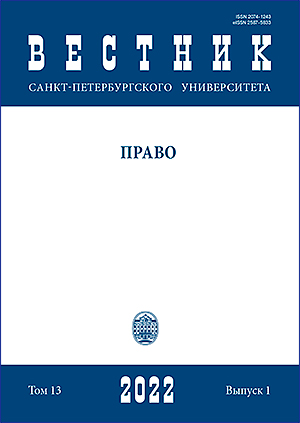Cryptocurrencies and crypto-assets in the Italian and EU perspective
DOI:
https://doi.org/10.21638/spbu14.2022.112Аннотация
The article provides a first critical exam of the approach taken by EU Regulators and Courts regarding cryptoactivities. The purpose of this analysis is to see if a new European regulation on “encrypted” financial services will really be born. The analysis begins with the definition and regulation of Cryptocurrencies, the best of which are probably found in the opinions of supervisory and regulatory bodies. Italian courts dealing with this difficult subject show uncertainty among assets (beni), money (valuta), and financial products. Today the reflection of both Regulators and Courts is expanding from cryptocurrencies to the wider and even more indefinite area of the so-called crypto-assets. In this regard, the most recent and important element is given by the European Commission Proposal of September 24, 2020, concerning regulation of crypto-asset markets (Regulation on Markets in Crypto-assets, MiCA). The proposed regulation should apply to crypto-asset issuers, as well as to providers of crypto-asset services on the territory of the European Union. Also in this case, the definition of “cryptoasset” is crucial. New rules provide a fairly generic definition as “digital representations of value or rights that can be transferred or stored electronically using distributed ledger or similar technologies”. To obviate the vagueness of the definition, the only possibility seems to be moving by subtraction, i. e., listing a series of “tools” to which the proposed regulation does not apply, even though these may fall, in theory, in the broad definition of “crypto-asset”.
Ключевые слова:
financial markets, cryptocurrencies, crypto-assets, financial instruments, financial products, blockchain, distributed ledger technology, smart contracts, token, investor protection
Скачивания
Библиографические ссылки
Загрузки
Опубликован
Как цитировать
Выпуск
Раздел
Лицензия
Статьи журнала «Вестник Санкт-Петербургского университета. Право» находятся в открытом доступе и распространяются в соответствии с условиями Лицензионного Договора с Санкт-Петербургским государственным университетом, который бесплатно предоставляет авторам неограниченное распространение и самостоятельное архивирование.






